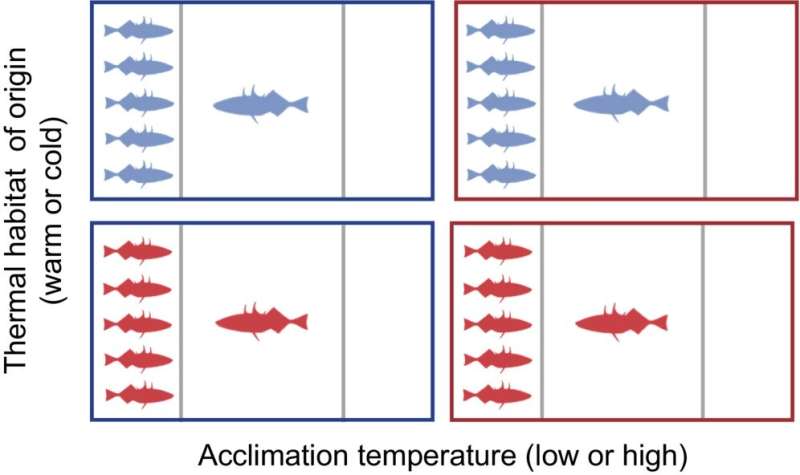Temperature can affect social behavior in fish

A new study from the University of Aberdeen has shown for the first time that temperature can affect social behavior in fish.
The research published today (October 19) in Global Change Biology, suggests that as temperatures rise because of climate change, some animals may become less social as a result.
Scientists researching the potential impact of climate change on social behaviors of animal populations studied freshwater fish from warm and cold habitats in Iceland.
Dr. Natalie Pilakouta, from the University of Aberdeen's School of Biological Sciences led the study. She said, "Because of intense geothermal activity in Iceland, there are many geothermally warmed lakes in addition to ambient-temperature lakes. The threespine stickleback is a small fish species that is found in both types of lakes."
By comparing fish from both settings, the researchers were able to identify the evolutionary changes that have taken place after living in a warm environment for many generations. These geothermal populations provide us with a window into the future effects of climate change.
Dr. Pilakouta added, "We found that fish from warm habitats were less social than those from colder environments. Furthermore, fish that were reared at high temperatures in the lab were also less social than those reared at low temperatures.
"We could clearly see that some of the fish stayed close to their groups, but those who were less social would swim away.
"This study provides a novel insight into how a warming world may influence sociality in animal populations in the future. Social behavior can influence an individual's vulnerability to predators, ability to find food, and disease risk. Therefore, a change in social behavior due to climate change could have major consequences for individual fitness, group dynamics, and population survival."
More information: Natalie Pilakouta et al, A warmer environment can reduce sociability in an ectotherm, Global Change Biology (2022). DOI: 10.1111/gcb.16451
Journal information: Global Change Biology
Provided by University of Aberdeen


















